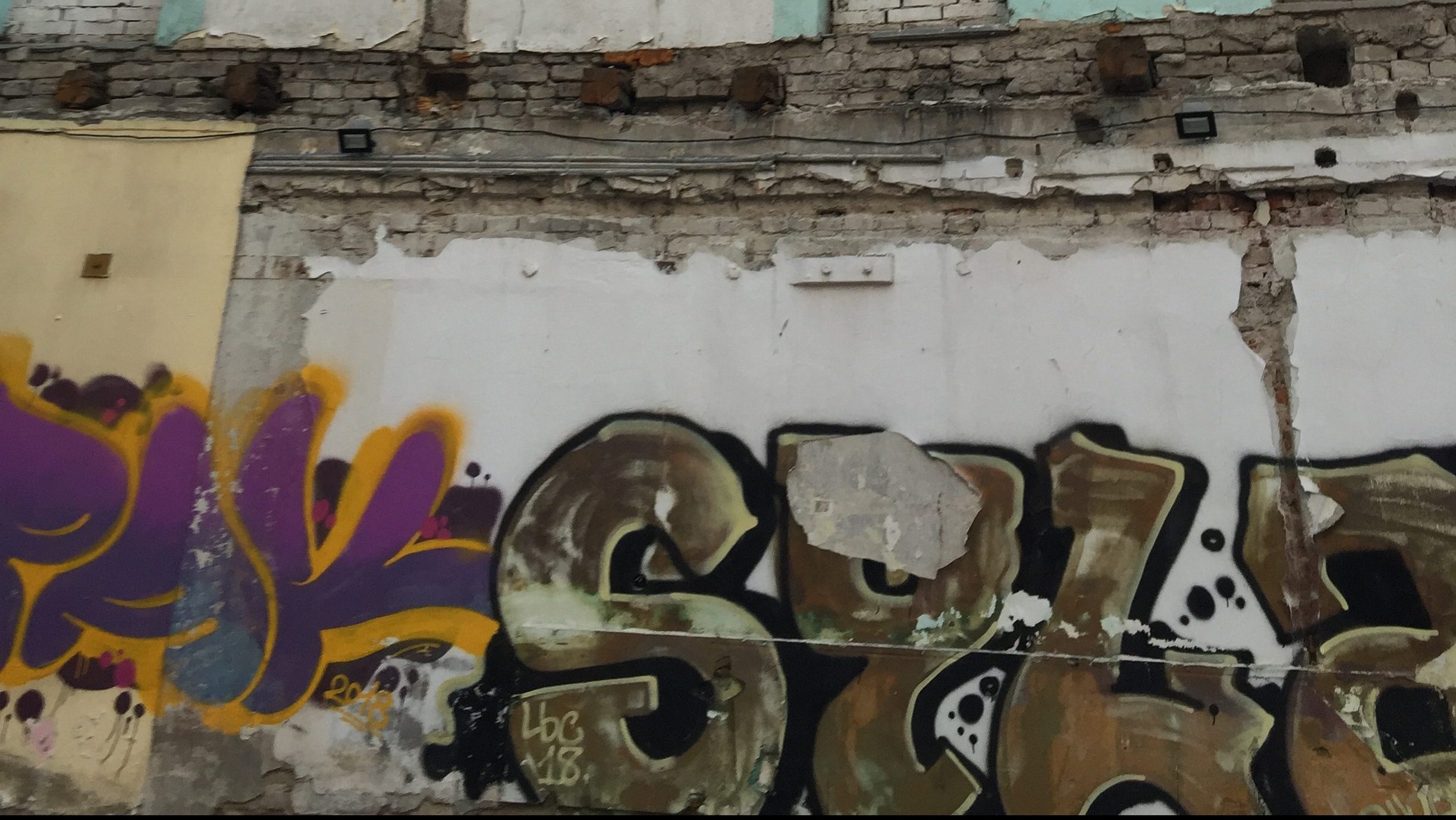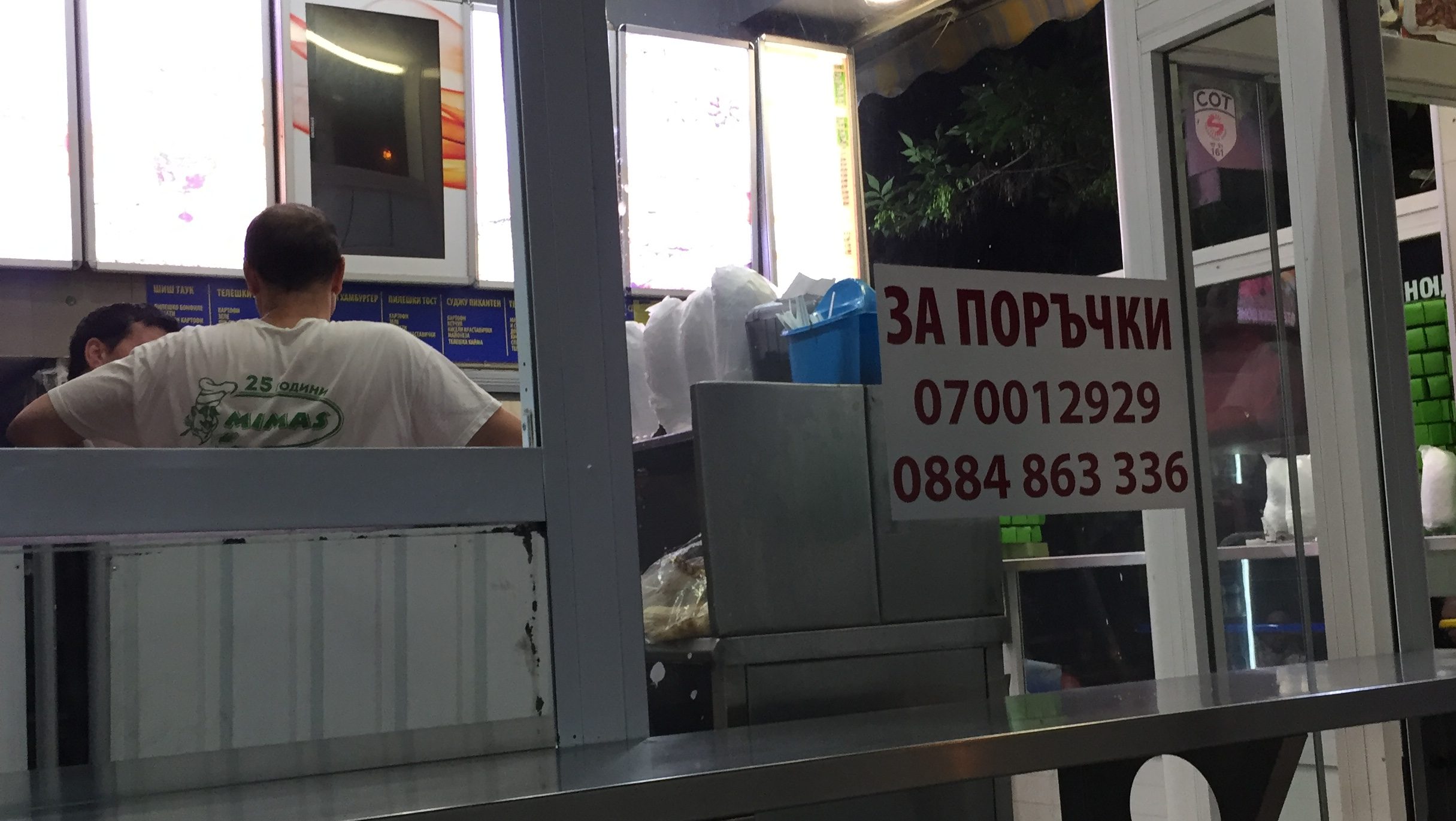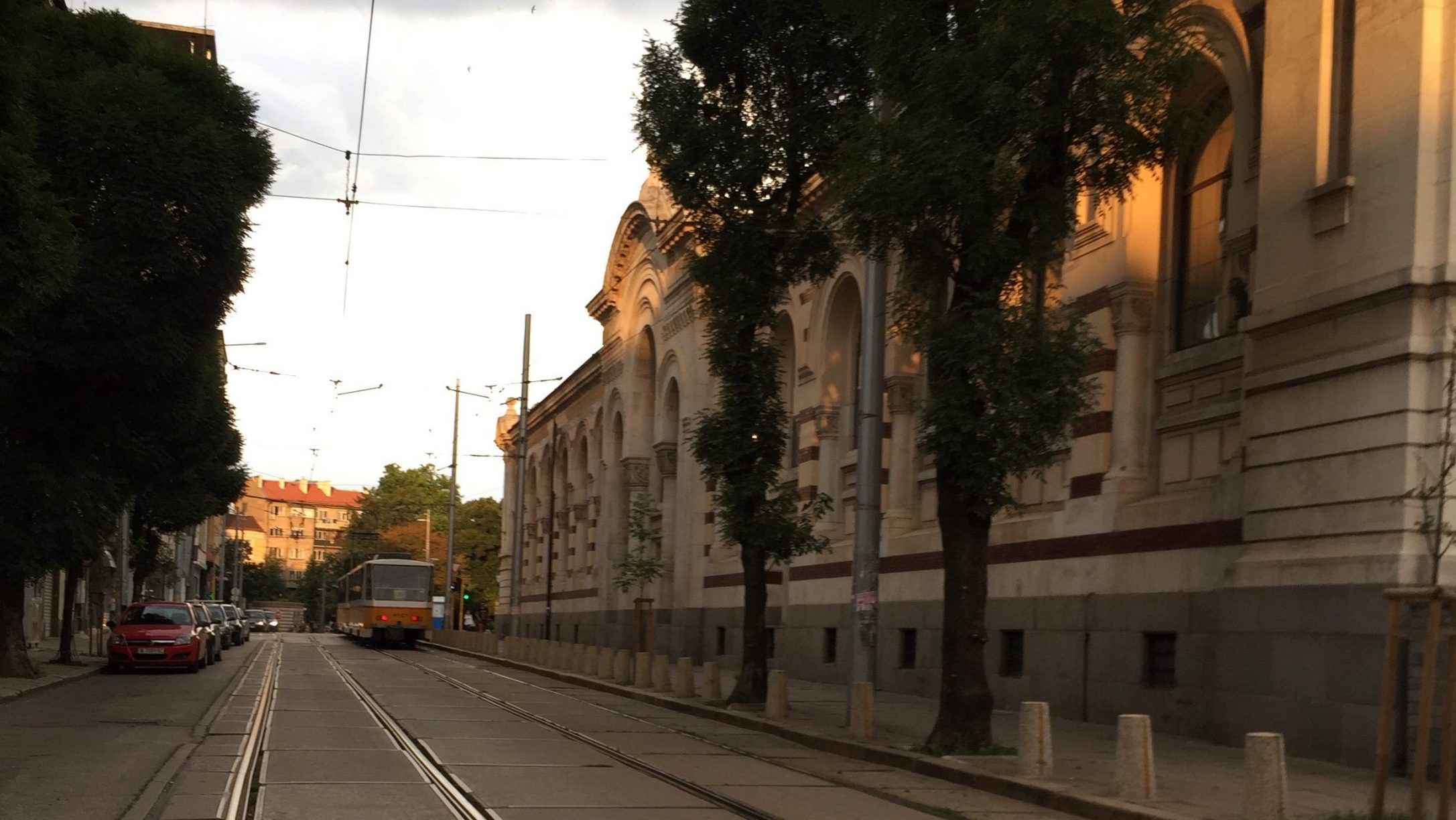January 3, 2018
Sofia, Bulgaria
The Sofia airport has a loudspeaker system that plays a recording of a heavy, tolling church bell before each announcement. I think of that sound when I wake up to the very blue, cold darkness of my apartment on the third day of the new year. I feel that sharp and miserable sense of dread that comes at the end of the winter holiday, when everything is forced to become new and unadorned, yet again, yet again. I remember that bell sound as I turn over in my bed, chilly and in shock, at 4:50 a.m.
The Wi-Fi in my apartment has run out for the month. When I finally sit up in the dark and use the remote control to click on my wall heating unit, by force of habit I try to flick my phone’s browser to something to wake myself up, although I internally know that there is no Wi-Fi to get there. The company that I buy my internet from flashes a little “Oops, sorry!” page whenever the bill is due, complete with a smiley face formed from a parenthesis and an equals sign, a face that always makes me feel reprimanded and defensive.
All I have to eat is flour, sugar, pomegranate molasses, hot sauce, and a jar of peppers. The grocery store around the corner opens at seven. Outside, the streets are still dark, dimly lit by pale-yellow streetlights, and since I’ve been away for a while, everything looks strangely new and unfamiliar. I notice a red-and-white sign across the street from my door that advertises an emergency clinic with a red cross. The cold air smells like woodsmoke and cigarettes.
I walk along the pavement to the bright yellow and blue of of the store, alongside only a few older people on their way to buy groceries. People here often use these little plaid-patterned baskets on wheels, which you tilt at one angle and drag behind you like a suitcase, to transport yogurt and piles of plums and mint and cabbage leaves. As I walk, I see an older woman bundled in a large coat dragging along one of these baskets. She pauses to peer into the large silver trash receptacle to our right. With a slight flush of guilt, I walk around her.
The store near my house is like a Bulgarian version of Big Lots, except they also sell food and an impressive collection of bread, along with huge bins and piles of whatever Greek-made household items didn’t sell in Western Europe this week: socks, four-packs of lingerie, children’s multicolored backpacks. As I go inside, the woman from the street enters behind me. She pauses in the bright entrance, by the oranges and apples, as if blinded. I watch her as I help myself to a plastic produce bag from the rack next to me. She is very quiet and still as she gazes into the opening of the store, and her mouth and cheeks are streaked and dotted with something dark—dirt or food or something. Her boots are light-brown lace-ups and are untied, flopping around her ankles. She raises her hand and starts slowly casting a finger methodically forward, her mouth forming silent words, as if counting.
At home, I wait for my hot plate to heat up, slicing onions and peppers, then toast them in olive oil with cumin and scramble in two eggs. It burns a little, as is inevitable with a hot plate, but is still good, especially on toasted white bread with a squirt of the hot sauce I brought back from America.
It’s time to go back to my office, and I don’t really feel like I have the strength. Everything feels itchy and uncomfortable. I feel like I don’t fit here anymore. I am mostly alone in Bulgaria.
 Eliza Emily Campbell
Eliza Emily CampbellI decide to put on very bright lipstick.
Because I am part of a specific and highly predictable market demographic, I have become obsessed with everything having to do with Rihanna, including her new lipstick. The brush is round, with a little flare up at the top that allows you to push paint into the upper curves of your top lip, if you have any. I barely have any. But it is still the grace and honesty of Rihanna’s sacred cupid’s bow, of her important lips, that lead me as I guide the brush around my mouth, first indenting curves on my top lip, then shifting the paint down, then outlining my bottom lip, then using my finger to cut excess paint. As with every time I use this lipstick, it makes me feel slightly self-conscious, sloppy, and happy. I know that this is exactly what the big money guys who marketed this product to me wanted me to feel, and I don’t even care. I think about this a lot: whether or not your awareness of a thing’s shittiness, or of its popularity, should preclude your love of it, your belief in it. In the case of Rihanna’s lip paint, I don’t care. It just feels nice to have red lips.
Back at the office, I make the slightly awkward rounds that go along with returning after a long holiday absence. Hello! I missed you! Hi-i-i! It’s genuine, but I still worry that my lipstick is on my teeth, that I look different from or worse than I did before the break, that someone will comment on it. I greet everyone the Bulgarian way, wishing them one hundred years, to be happy and healthy and alive and well, telling them that I desire good things for them in the new year. Some people shake hands, some people kiss each cheek, some people hug. I never successfully predict who will want what.
At lunchtime, or whatever passes for lunchtime when you woke up at 5 a.m., I can’t stand it anymore and go to the deli near our office. I ask for a piece of biscuit cake, the dessert that features stacks of plain hard biscuits layered with sweet pastry cream until they become gelatinous and soft. The man behind the deli counter chooses a huge square and starts to wedge it into a small plastic container. “Will that fit?” I ask nervously. I’m saying it mostly to make conversation. He smiles and laughs and says a word that means “Naturally!” but that conveys, “Of course, of course! I am an expert on this topic!” I take the cake back to my office and try it. It’s a little too sweet, but I still eat most of it, along with another Coke Zero. I’m trying not to fall asleep, and my hands start shaking.
 Eliza Emily Campbell
Eliza Emily CampbellIn order to avoid actual work, which seems impossible in this haze of sugar and jet lag, I send a message to one of my friends, an asylum seeker from Afghanistan living in one of the centers for refugees. I ask him if he is still in Sofia, if I’ll see him soon. He responds that he doesn’t know, maybe not. I wonder if he’s left for Serbia or Austria, which was his previous plan.
I walk home, past the courthouse and its large statues of white lions, past the shopping district, down the main boulevard, still strung with blue lights. A block from home, I feel a man walking closely behind me. Out of superstition, or habit, I pause and let him walk past.






